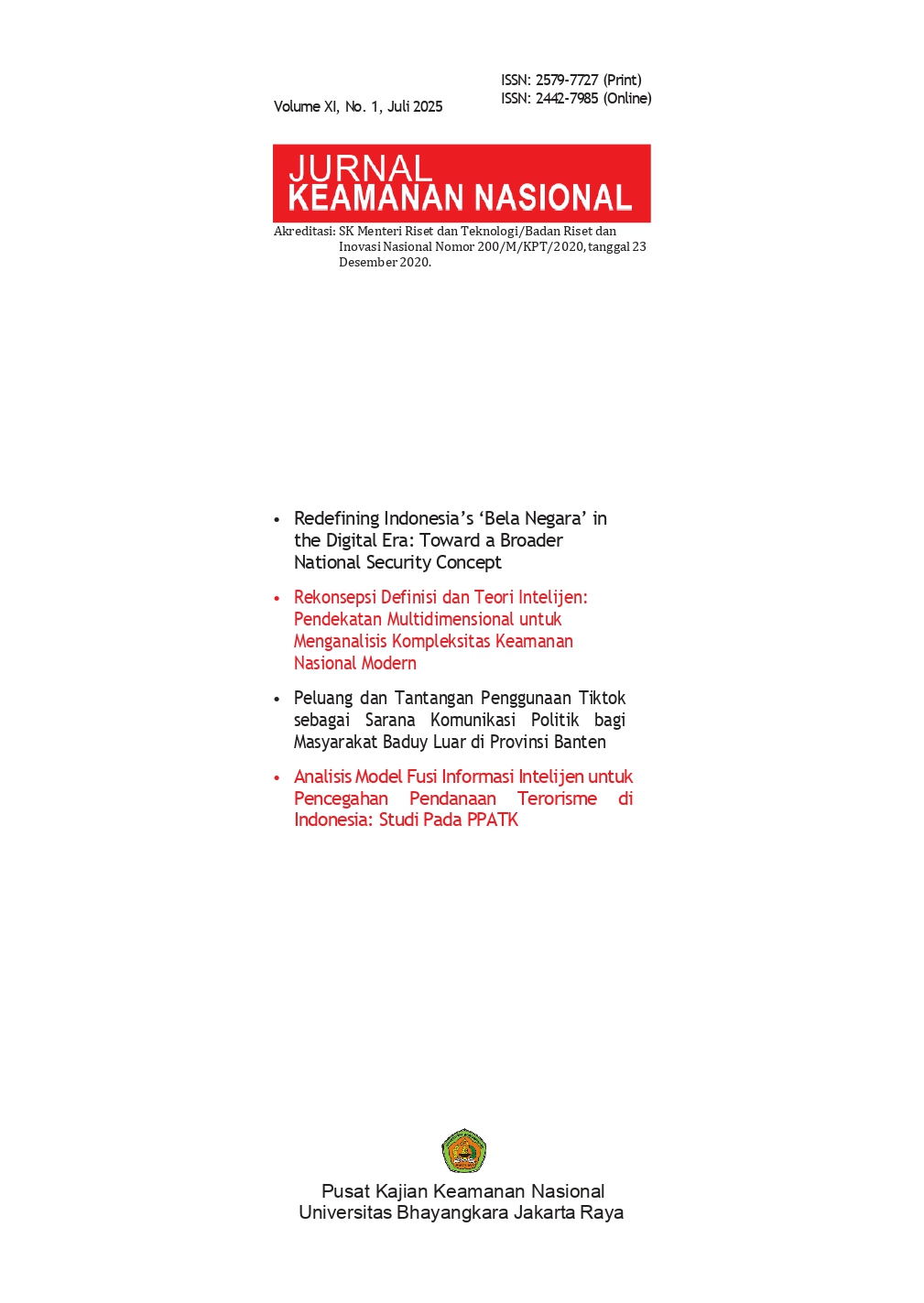Rekonsepsi Definisi dan Teori Intelijen dalam Keamanan Nasional
DOI:
https://doi.org/10.31599/8nxd7c72Keywords:
intelligence theory, intelligence definitions, intelligence, national securityAbstract
Intelligence plays a crucial role in maintaining a nation's national security, functioning not only as a tool for information gathering but also as a means of analyzing and interpreting data to support strategic decision-making. In the context of globalization and advancements in information technology, threats to national security have become increasingly complex, encompassing terrorism, cybercrime, and interstate conflicts. The reconceptualization of intelligence definitions and theories is essential to address modern challenges that are multidimensional in nature. This paper discusses various definitions of intelligence from experts, including the views of Sherman Kent, T.F. Troy, and D. Kahn, while emphasizing the importance of the processes of gathering, analyzing, and presenting relevant information. Furthermore, this paper highlights the need for integrating perspectives from both academics and practitioners to create a more holistic and adaptive understanding of intelligence. With a more inclusive approach, it is hoped that the intelligence strategies adopted by nations can remain relevant and effective in facing the continuously evolving challenges in the modern world.
Downloads

Published
Issue
Section
License
Copyright (c) 2025 Stanislaus Riyanta (Author)

This work is licensed under a Creative Commons Attribution 4.0 International License.
Please read and understand the copyright terms for submissions to this journal.
Copyright Notice
The Jurnal Keamanan Nasional is under the Creative Commons Attribution 4.0 International (CC-BY 4.0) License, according to which:
1) Authors retain copyright and grant the journal the right to first publication, with the work simultaneously licensed under the Creative Commons Attribution (CC-BY 4.0) that allows the sharing of articles published with the acknowledgement of authorship and the initial publication in this journal.
2) The authors are authorized to make additional contracts separately for distribution of the version of the work published in this journal (for example, publication in an institutional repository or as a chapter of the book), as long as there is recognition of authorship and initial publication in this journal.
3) Authors are authorized and encouraged to publish and distribute their work online (for example, in institutional repositories or on their personal pages) at any time before or during the editorial process, as it increases the impact and reference of the published work.












